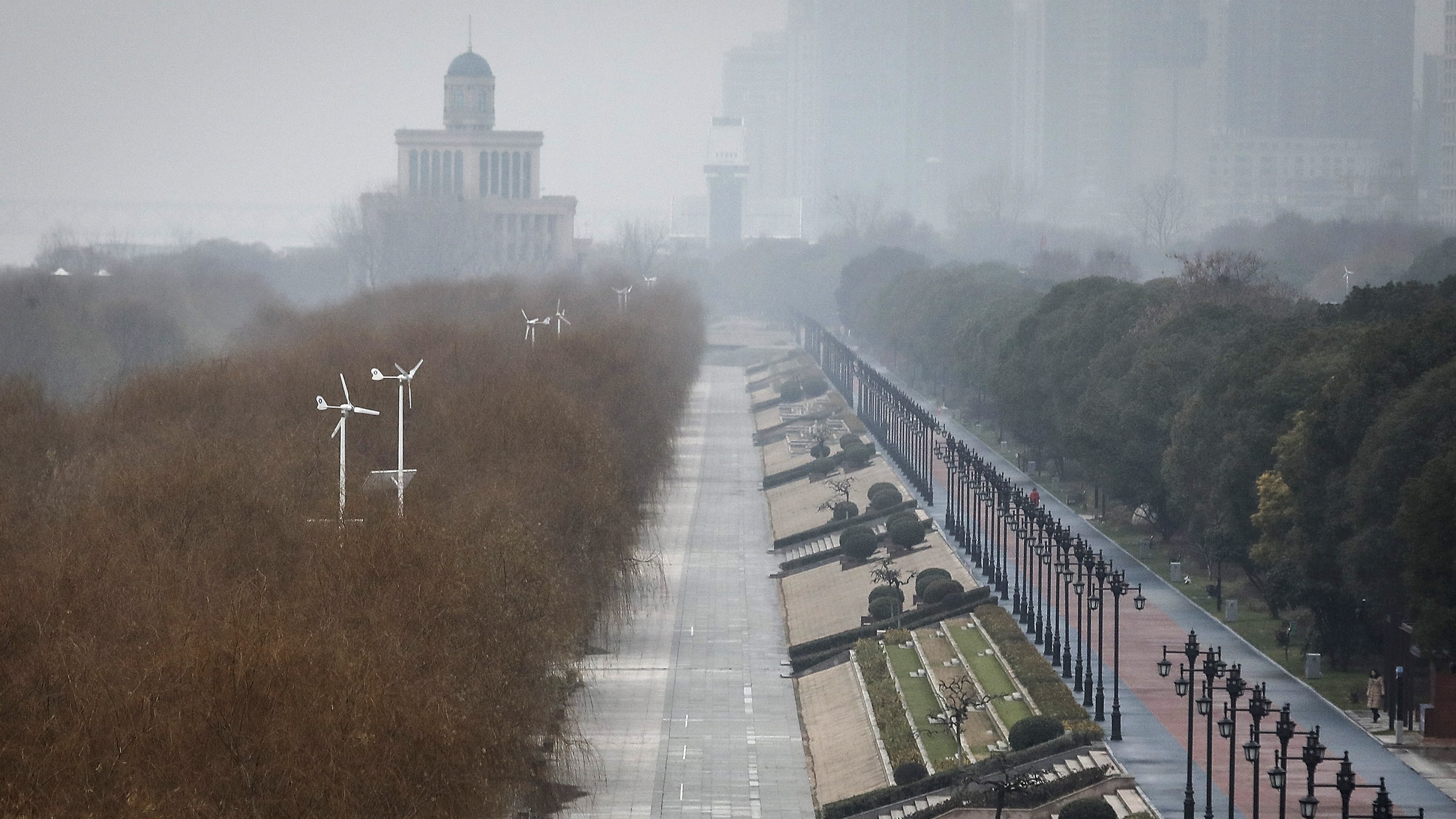What will happen when China lifts coronavirus restrictions?
Travel ban to be ended in pandemic epicentre within a matter of days

A free daily email with the biggest news stories of the day – and the best features from TheWeek.com
You are now subscribed
Your newsletter sign-up was successful
Residents of Wuhan have been warned to stay indoors and stick to distancing measures, just days before travel restrictions to the city are due to be lifted.
Wuhan, in China’s Hubei province, is widely believed to be the city at the centre of the new coronavirus pandemic.
What is the situation now?
The Week
Escape your echo chamber. Get the facts behind the news, plus analysis from multiple perspectives.

Sign up for The Week's Free Newsletters
From our morning news briefing to a weekly Good News Newsletter, get the best of The Week delivered directly to your inbox.
From our morning news briefing to a weekly Good News Newsletter, get the best of The Week delivered directly to your inbox.
The Daily Telegraph reports that outbound travel from Hubei province has resumed, with the exception of Wuhan.
On Friday, China reported 31 new confirmed cases, including two locally transmitted infections. Four people died, all of them in Wuhan, says The Guardian.
Residents of Hubei are able to travel out only if they have a “green code” health designation, which Business Insider says comes from a mandatory smartphone health app.
People using the service are assigned a QR code, the site explains, along with a colour ranking. Green means the user is free to travel, while yellow or red means they must be quarantined.
A free daily email with the biggest news stories of the day – and the best features from TheWeek.com
The code is based partly on an individual’s answers to an in-app questionnaire, but little is known about how people are classified. This has led to confusion among those who receive a red code, says Reuters.
According to Tencent, the company behind the app, more than 700 million people are currently using the health code service.
“Everyone is being very careful,” Iris Yao, 40, who has been in the city for the last two months, told the Guardian.
What will happen next?
Restrictions in the city itself will be lifted on 8 April, according to the local health commission. Wuhan, the site of the first recorded cases of coronavirus, has been in total lockdown since 23 January.
With travel restrictions being relaxed, Chinese premier Li Keqiang has warned local governments against any attempts to cover up new Covid-19 cases.
With some nations doubting the veracity of China’s claims, in part due to the country’s slow response to the outbreak in early December, Li – the second-ranked member of China’s decision-making politburo – urged that officials “not cover up reports for the sake of keeping new case numbers at zero”.
Wang Zhonglin, Wuhan’s Communist party chief, warned that the risk of a rebound in the city’s fight against coronavirus remained high.
The country will hold three minutes’ silence at 10am Saturday (2am BST) for 14 “martyrs” who died tackling the coronavirus outbreak.
Doctor Li Wenliang is one the 14 workers given the honour for their efforts. Before his death, he was reprimanded for “spreading rumours” after he sought to warn colleagues about the emergence of the new coronavirus in December.
Air raid sirens and horns of cars, trains and ships will “wail in grief” after the silence is observed across the country, the official Xinhua news agency said.
Can we learn from China’s response?
China’s strict lockdown and social distancing measures in Wuhan may chart a route back to normal life for other countries, according to a report from Imperial College London.
Neil Ferguson, who is one of the main modellers of the epidemic for the UK, told the Guardian that China’s successful suppression of the virus “provides some hope for countries currently in various levels of lockdown”.
Ferguson added that similar relaxing of restrictions was dependent on the introduction of “equal measures to limit the risk of the resurgence of transmission”. He also warned that any end to the current lockdown would also require “rapid and ubiquitous testing and rigorous case and contact isolation policies”.
Health secretary Matt Hancock said the UK will carry out 100,000 tests per day by the end of April, despite it currently struggling to complete 10,000 tests per day.
But the government is under pressure to explain how it hopes to increase its coronavirus testing tenfold within a month.
Jeremy Corbyn, the outgoing Labour leader, said: “The fact that we are not yet even testing 10,000 people a day is very, very serious indeed. There are almost half a million [frontline] people working in the NHS and the care sector. Even they have not yet been tested. It is ludicrous. We have got to get on top of testing.”